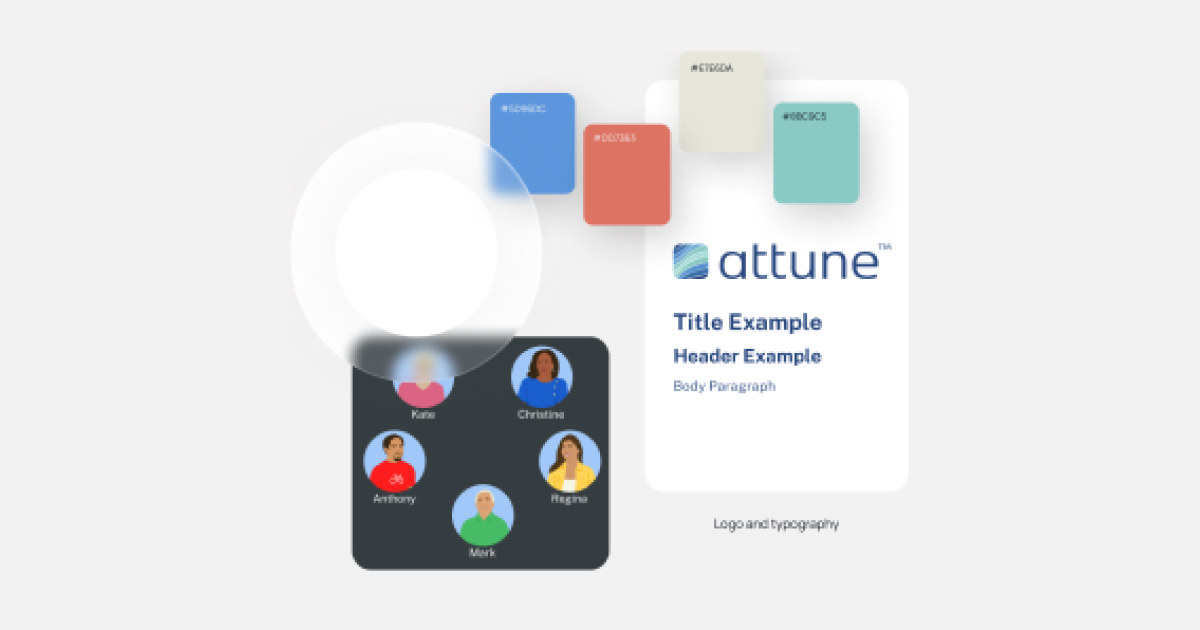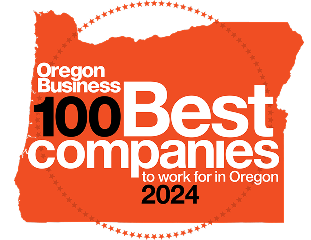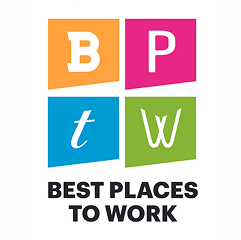The best healthcare apps – and what puts them on top
Since the onset of the COVID-19 pandemic, mobile health (mHealth) apps have emerged as a valuable and increasingly normalized resource. Currently, there are over 400,000 mHealth apps available in app stores. According to Global Market Insights, the global mHealth market will be worth $289.4 billion by 2025.
These apps, designed to provide various services ranging from mental well-being support to physical health monitoring via wearable devices, have become a major part of med tech innovation.
Based on our experiences as a health tech agency, here are some of the top factors that make for a successful health app, along with our top picks in each category.
What are mHealth apps?
Mobile health (mHealth) apps are software applications that run on mobile devices, such as smartphones and tablets, to support the delivery of health-related services and information. Fitness tracking, medication management, disease management, telemedicine, and health education are all possible uses for these apps.
The benefits of mHealth apps are numerous and varied, including increased convenience, access to real-time health data, and the ability to monitor and manage health conditions more effectively. Fitness tracking apps, for example, allow users to measure their activity levels and progress toward fitness goals, whereas medication management apps can assist users in remembering to take their medications on time and prompt them to note any side effects they may be experiencing.
Overall, mHealth apps can be valuable for promoting healthy behaviors and improving health outcomes. However, as with any technology, their effectiveness and impact will vary depending on several factors, including the user's goals and motivations, the app's features and design, and the quality of the health information and services provided.
What makes mHealth apps successful?
Success can be measured in various ways depending on an mHealth app's goals. However, the following are some standard characteristics that are frequently used to assess the success of mHealth apps:

Promotes long-term habit formation
The successful formation of habits is critical for the success of many mHealth apps, which are often designed to assist users in adopting and maintaining healthy behaviors.
Consistency is required to achieve many desired health outcomes, and habits are simply automatic behaviors that are repeated regularly. Users of mHealth apps must consistently engage in healthy behaviors to see long-term results.
Creating new habits is also necessary to sustain desirable changes and lay the groundwork for future lifestyle improvements. Habit formation wins can lead to a sense of self-efficacy, which can significantly impact an individual's confidence and competence in maintaining a healthy lifestyle.
Successful mHealth apps comfortably employ behavior modification techniques and motivational strategies to assist users in developing new habits and incorporating them into their daily routines.
Privacy and data security
Data security is critical to the success of mHealth apps. Users must be able to rely on the safety and protection of their data because these apps collect and transmit sensitive health information. Failure to maintain data security may result in privacy violations, loss of trust, and potential legal consequences.
Countries have differing legal requirements for protecting personal health information, such as the Health Insurance Portability and Accountability Act (HIPAA) in the US. Failure to follow these regulations may result in legal action and harm the app's reputation.
Additionally, data breaches and security incidents can harm the reputation of mHealth app developers and vendors. Such missteps may also result in financial loss due to a loss of user trust and the poor reviews that may accompany it.
Finally, security failures can also undermine a mHealth app’s ability to influence targeted health outcomes, one of the strongest metrics for success in this space. Users who are unsure about the security of their personal health data may be less likely to provide accurate information or follow recommendations, potentially limiting the app's effectiveness.
User engagement
Regular user interaction is a significant factor in determining the success of mHealth apps. User engagement, which measures user interaction and app usage, is a crucial metric for assessing an app's effectiveness in promoting healthy behaviors and overall success. Here are a few of the reasons high user engagement may signal mHealth app success:
- Consistent user engagement indicates that the app effectively motivates users to adopt healthy behaviors meant to improve health outcomes.
- High levels of engagement indicate satisfaction with the app’s user experience.
- High user engagement enables data collection on user behaviors and health outcomes and that can be turned into valuable insights for further app improvement.
App engagement can be measured through metrics such as the number of downloads, active users, and daily/monthly active users. A high level of engagement indicates that the app is meeting user needs and providing value.
App usability and satisfaction
The ease with which users can navigate and interact with an app is called usability. User satisfaction, on the other hand, refers to how pleased users are with their overall app experience. These factors are excellent indicators of success for the following reasons:
- An app that is easy to navigate is more likely to be used by its target audience and achieve desired outcomes.
- Usability and satisfaction rates indicate whether or not the app is meeting the user’s needs.
User satisfaction with the app can be measured through surveys or app store ratings and reviews, while usability can be measured through user testing or other usability testing methods to ensure the app is easy to use and navigate.

Health outcomes
Measurable health outcomes can provide evidence of an app’s impact on user health and well-being, a key indicator of app success. mHealth apps can demonstrate their effectiveness by demonstrating the ability to improve health outcomes such as blood pressure, blood glucose levels, or weight.
For example, a weight loss app may track users' weight changes over time, and users who experience positive results may be more likely to use the app again and recommend it to others. Similarly, an app that assists users in managing a chronic condition such as diabetes may track changes in blood glucose levels, with improvements indicating the app's effectiveness in helping users manage their condition.
Measurable health outcomes can be helpful for persuading healthcare providers and insurers to use or recommend a given mHealth app to efficiently facilitate care. Overall, health outcomes can make a powerful case for users' to adopt the product to improve their health and well-being.
Cost savings
Many top mHealth apps tout their ability to significantly reduce costs for patients and healthcare providers while still providing high-quality care. A few examples of success in this area include:
- Reduced healthcare costs: mHealth apps can help reduce healthcare costs by making healthcare more convenient and accessible to patients. For example, virtual consultations, remote monitoring, and telemedicine can reduce the need for expensive in-person consultations and hospitalizations. If a healthcare provider can reduce the number of costly interventions, it may be an indicator that the mHealth app is a success.
- Increased efficiency: mHealth apps can help healthcare providers operate more efficiently by automating certain aspects of care delivery, streamlining processes, and reducing administrative burdens.
- Connecting patients with resources: mHealth apps can help wellness-seekers find and utilize more resources to support preventative health and ongoing treatment needs. For example, some apps can help reduce the financial burden of healthcare by assisting patients in finding the most affordable pharmacies or providing access to cost-saving coupons.
The best mHealth apps
Different mobile health apps seek to address different aspects of healthcare and wellness. Here are our top mHealth app picks in several key health tech categories, selected according to the success criteria discussed above:
The best health tracking app: Quit Genius
Quit Genius is a mobile app that provides a digital solution for those looking to quit smoking, drinking, or using other addictive substances. This convenient and effective app has achieved great results by helping people to form healthier long-term habits due to its successful implementation of several habit-forming principles.
Why is it successful?
- Based on a proven method, cognitive-behavioral therapy (CBT)
- Personalized treatment plans
- Offers interactive tools and exercises
- Comes with a community of supportive users for motivation and encouragement
- User-friendly interface, easy and accessible
The best medication management app: MyTherapy
The MyTherapy app helps users manage their medications and chronic conditions. The app allows users to set reminders for taking medications, track their symptoms and progress, and receive personalized tips and information. It can also monitor blood pressure, blood glucose levels, and other health metrics.
Why is it successful?
- Easy to use and customizable to a user’s specific needs
- Accessible and available in multiple languages
- Tracking and trend identification capabilities
- Users can securely share their data with their healthcare teams
- Personalized tips and educational resources
The best stress management app: attune
Our emotional wellness pick is an app primarily designed for cancer patients suffering from depression who lack direct access to traditional forms of therapy. Individualized meditation and mindfulness practices provided by Blue Note's attune app are derived from a research-backed program shown to support stress management, mental health, and overall well-being.

The app offers a variety of guided meditations, self-reflection exercises, and other tools to assist users in reducing stress, increasing focus and concentration, and managing emotions. Blue Note’s app is highly user-friendly and is effective at developing successful habit formation and improved health outcomes.
Why is it successful?
- Offers a personalized experience, customizable to each user’s specific needs and preferences
- A simple and intuitive user interface, easy to navigate
- The app's design incorporates soothing visuals and sounds that promote relaxation and calmness
- Convenient, accessible, and enables inclusivity
- Excellent community engagement feature
- Improved onboarding flow that supports group communication
- Top-tier HIPAA compliance
Why is it successful?
- User-friendly interface, easy to navigate
- Trackable symptoms, triggers, and progress
- Personalized and accessible mental health support
The best telemedicine app: Amwell
Amwell is a mobile health (mHealth) app that connects users with licensed healthcare providers, such as doctors and therapists, for virtual medical consultations. Users pay a fee to access medical professionals and receive medical advice via video or phone calls, messaging, or email through the app, which operates on a subscription basis.
Users can easily access medical care through Amwell from the comfort of their homes or workplaces, eliminating the need for appointments or travel. This makes it especially useful for people who have hectic schedules, limited mobility, or live in remote areas.
Why is it successful?
- Convenient access to healthcare
- Cost-effective, less expensive than in-person doctor visits
- Improves patient outcomes, particularly for chronic conditions such as diabetes, hypertension, and asthma, through early intervention and better condition management
- High user satisfaction rates due to cost-effectiveness, quality of care, and convenience
- Extensive care network due to Amwell partnering with other providers such as mental health support
- The app ensures the privacy and security of patient information
- Accessible, easy-to-use interface
The best electronic health record (EHR) app: Epic EHR
Epic EHR is a comprehensive health information technology platform that healthcare organizations use to manage patient medical records, clinical workflows, and administrative tasks. Epic Systems Corporation created the Epic EHR system and has offered it to healthcare providers since 1979.
Epic EHR has a web-based application that healthcare organizations use to manage patient health records, clinical workflows, and administrative tasks. Epic EHR is accessible via web browsers and mobile devices, making it a versatile platform for healthcare providers to access patient data on the go.
Why is it successful?
- Highly customizable, allowing healthcare providers to tailor the system to their specific needs.
- Integrates well with other systems, making it easier to manage patient data
- Strong focus on patient engagement with features such as patient portals, secure messaging, and telehealth capabilities
- Improves patient outcomes and satisfaction with care
- Known for its interoperability with other systems, such as pharmacy and radiology systems
- Excellent reputation for being reliable and secure, meeting rigorous data security standards
Key takeaways
Data security, ease of use, and habit formation are all critical success factors for mHealth apps. Data security is crucial for establishing user trust, while ease of use is essential in encouraging frequent engagement, and habit formation is required to support the development of healthy behaviors. By addressing these factors, mHealth apps can be designed to meet users' needs, resulting in higher adoption, better health outcomes, and higher user satisfaction.





























